Compared: 2023 Genesis GV70 vs. 2023 Genesis GV80
Putting two luxury SUVs head to head over power, design, and cost.
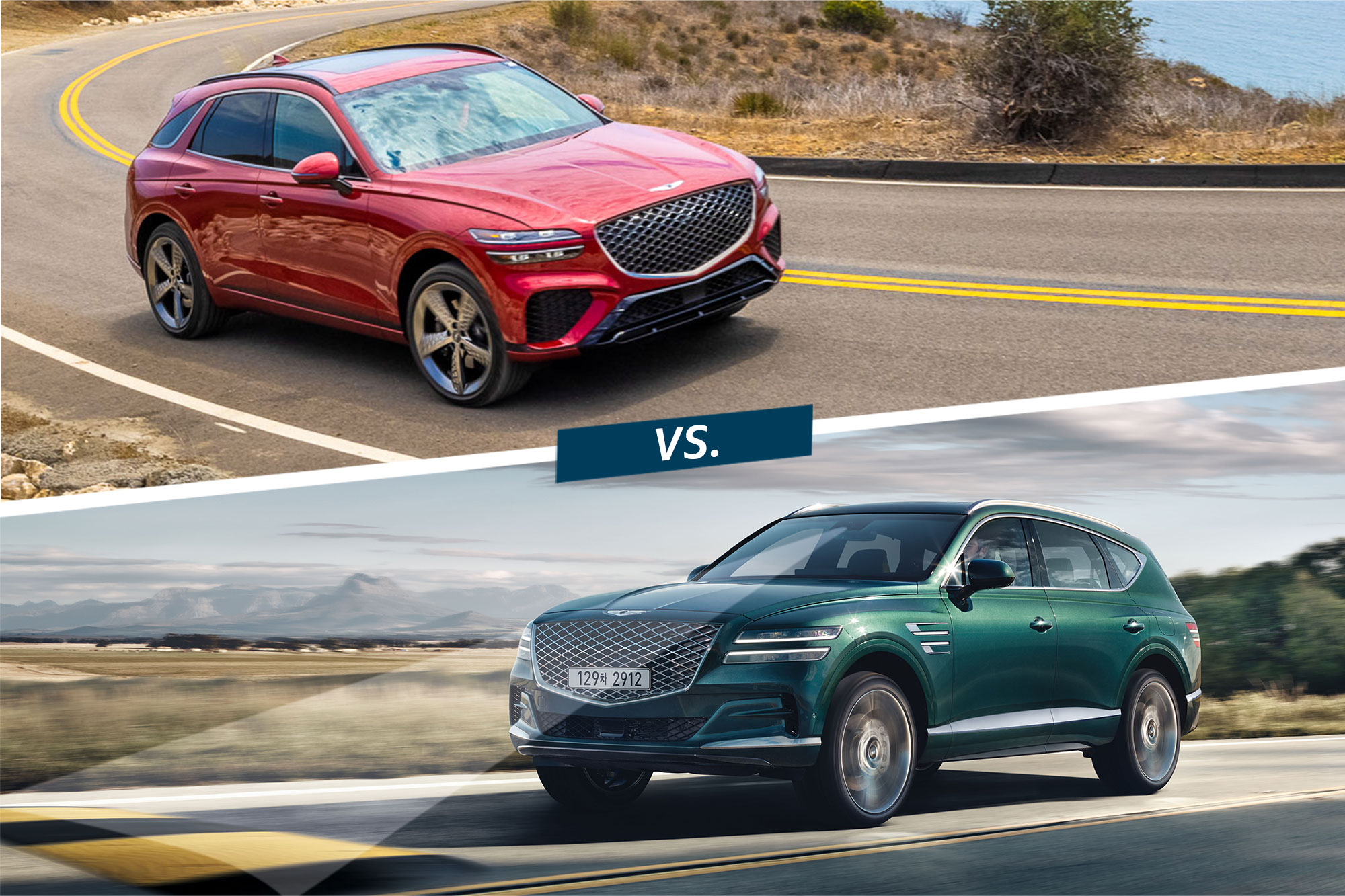 Genesis | GV70 (top)
Genesis | GV70 (top)
As a startup challenger, Genesis must go hard against more established luxury brands such as BMW, Mercedes-Benz, and Lexus in the SUV segment to attract potential customers and their dollars.
Fortunately, its pair of lead-off people movers, the Genesis GV70 and the Genesis GV80, each provide compelling reasons to switch to Korean-made comfort thanks to their robust engine options, outstanding cabins, and near-bargain pricing.
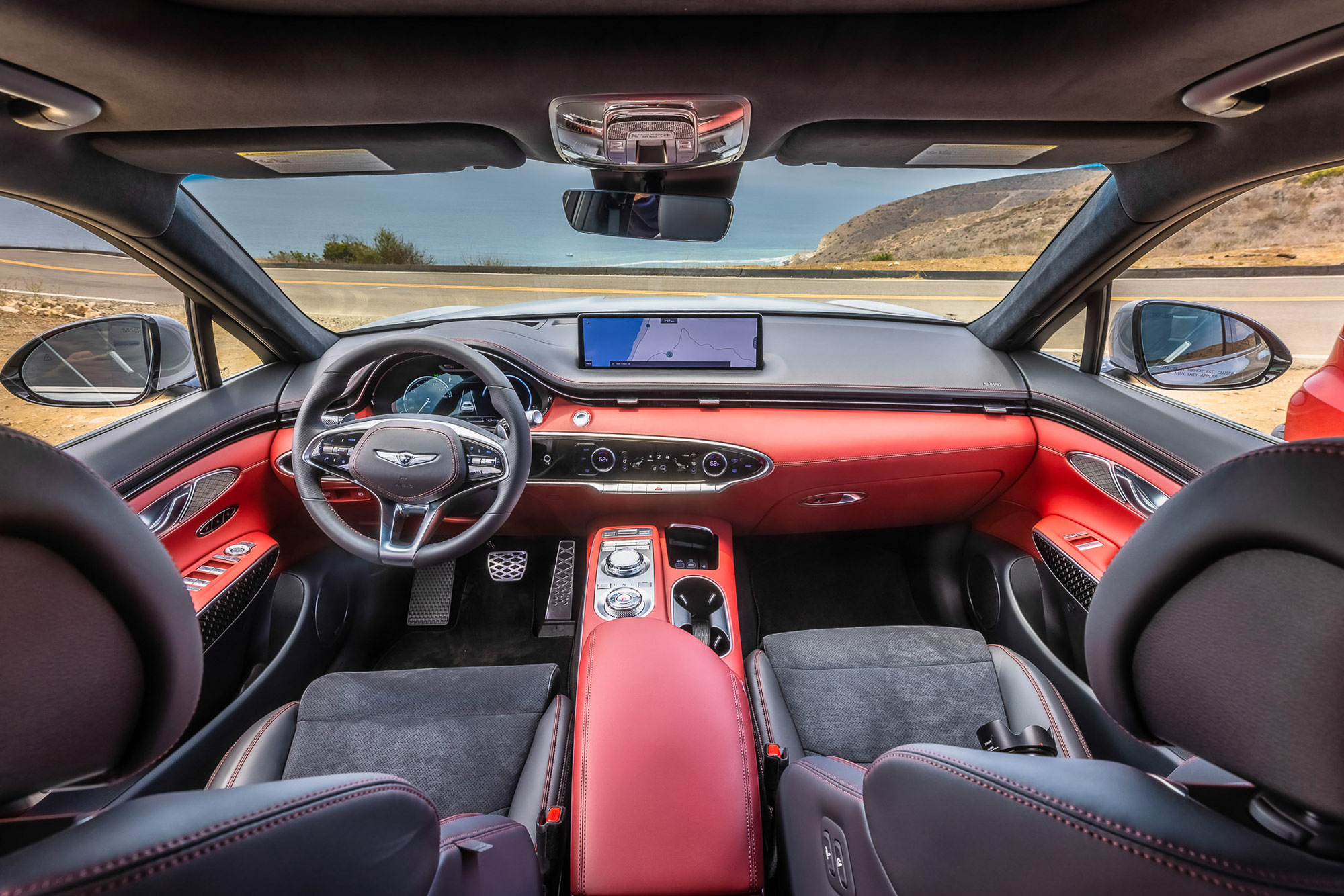 Genesis | GV70
Genesis | GV70
The Larger GV80 Commands a Higher Price
The GV70 is the more affordable of this pair of Genesis SUVs, which makes sense given its smaller size and its entry-level position in the automaker's lineup. The base model GV70, which features a turbocharged four-cylinder engine and standard all-wheel drive, checks in at around $44,000.
Genesis calls its trim levels packages. The most expensive GV70 is the Sport Prestige paired with its larger, turbocharged V6, which retails for just under $66,000.
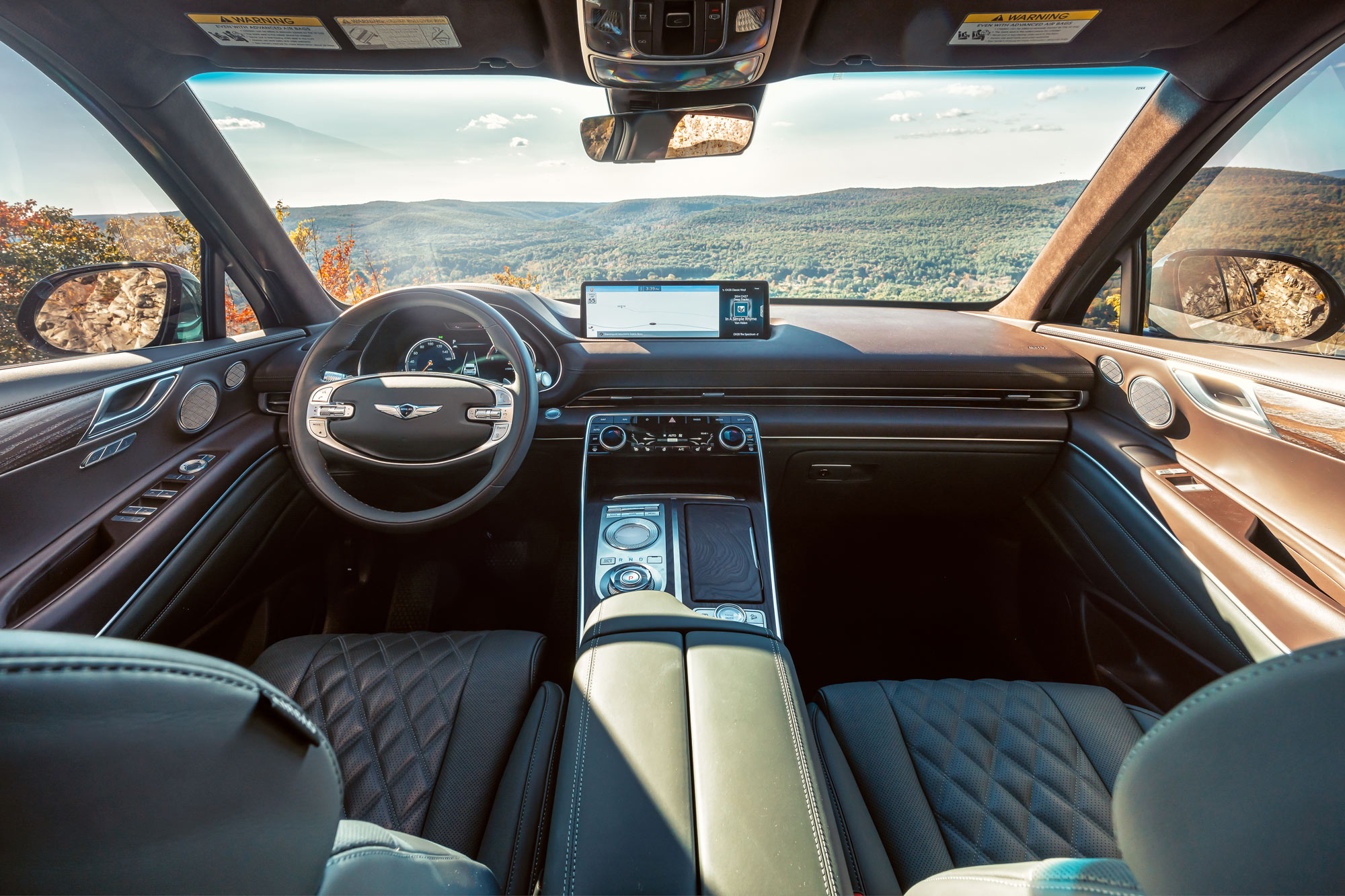 Genesis | GV80
Genesis | GV80
The midsize Genesis GV80 delivers the same base drivetrain as the GV70, but its starting price is about $10,000 higher at around $57,000. The top-of-the-line Advanced+ edition of the SUV, powered by a V6, will set you back more than $76,000.
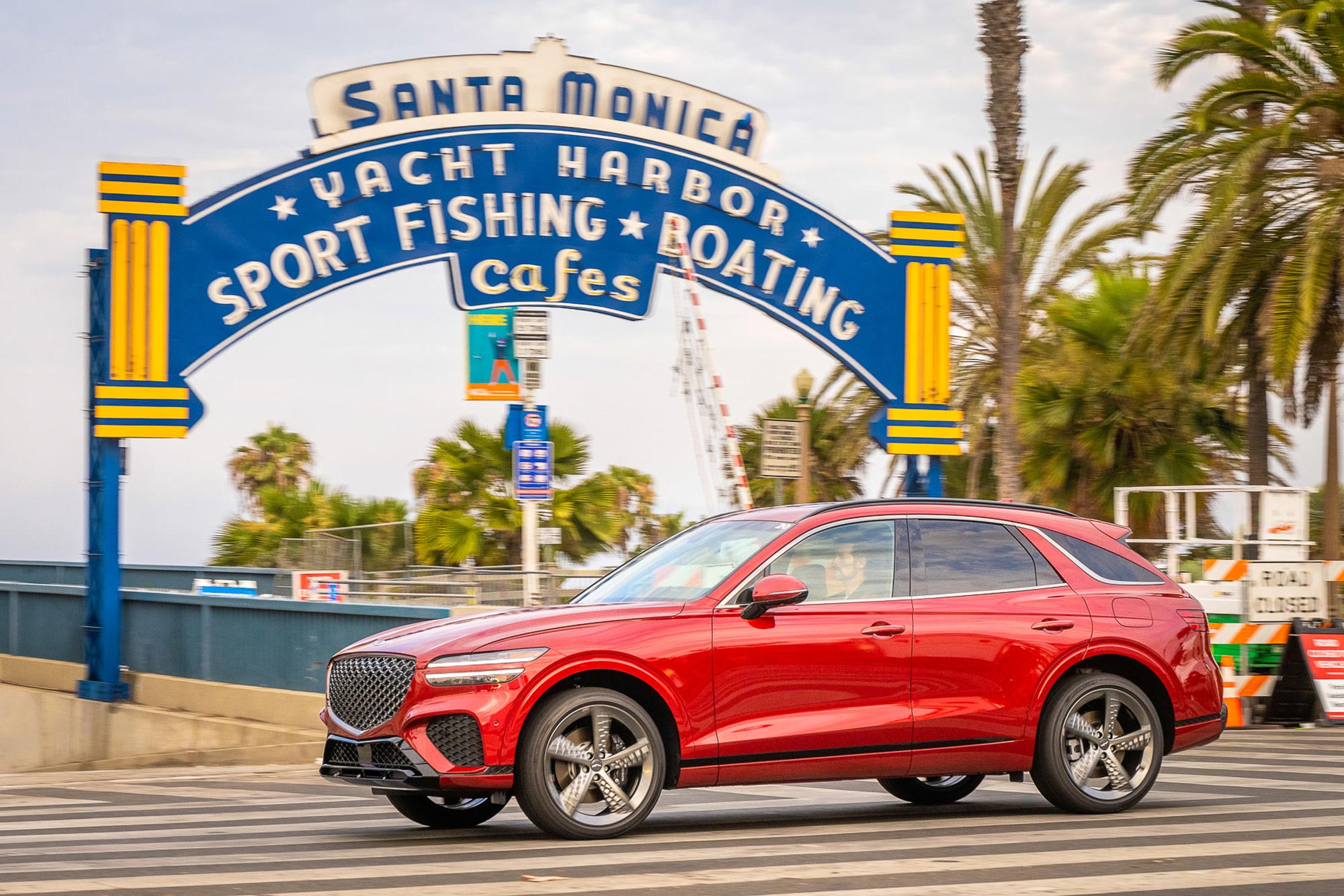 Genesis | GV70
Genesis | GV70
There's a Healthy Amount of Cargo Space in Both SUVs
The GV70's cabin is less austere than those found in similarly priced German luxury crossovers, with a generous helping of colorful leather available to buyers seeking to break with monochrome interiors. Switchgear presents logically, except for the infotainment and transmission gear selector dials being evenly sized and placed side by side.
In terms of cargo space, you're looking at a little less than 29 cubic-feet behind the rear seats, or 57 cu-ft in total, which is solidly mid-pack for compacts.
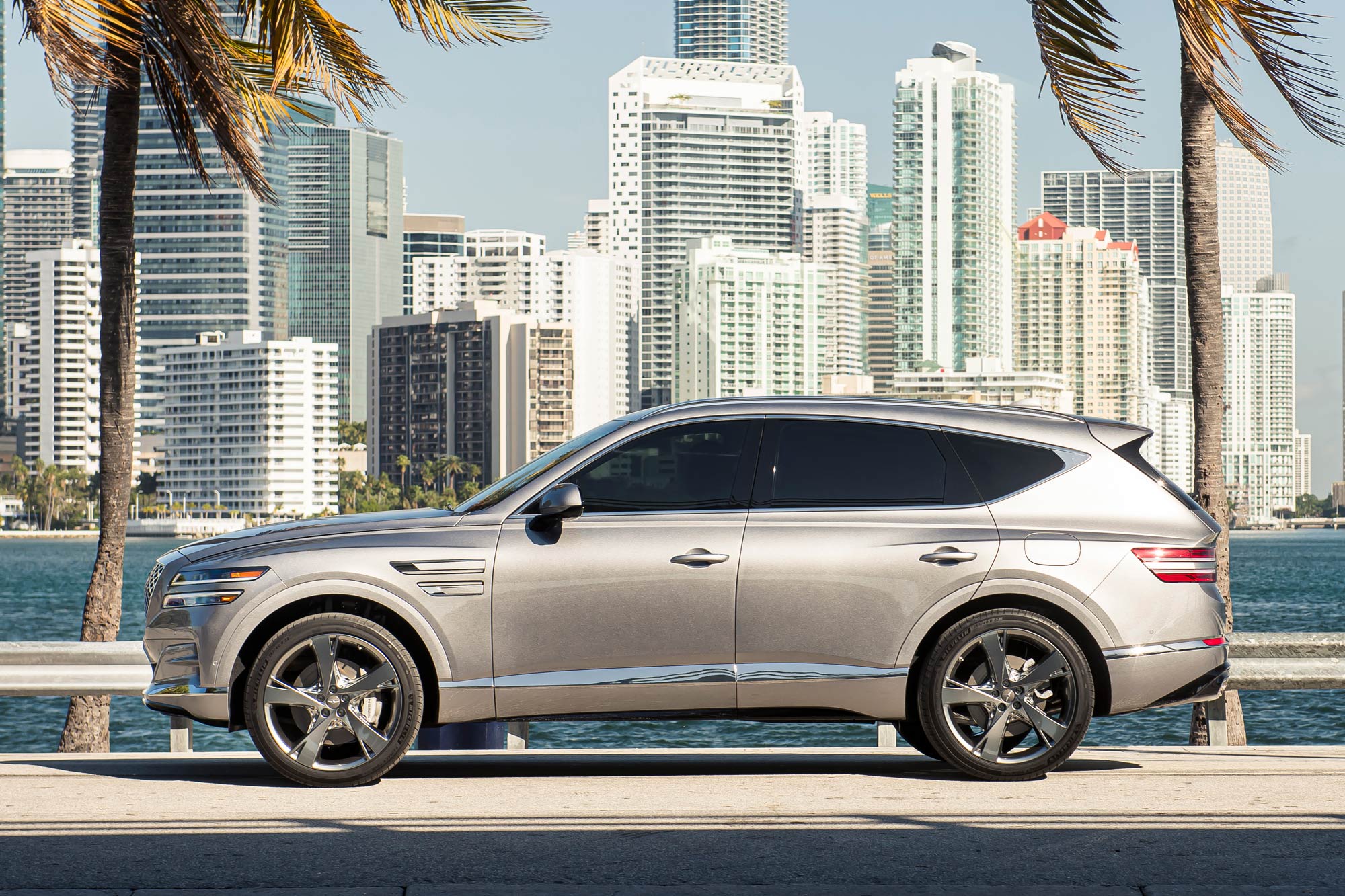 Genesis | GV80
Genesis | GV80
The GV80's interior turns up the heat substantially when it comes to materials and design, with quilted seats and even more extensive use of leather throughout the vehicle. It's a cut above most of its midsize rivals, with the only misstep being an unusual inverted dome infotainment controller that can be awkward to use.
Seating in the GV80 feels generous, with an improvement in legroom over the GV70 for those seated behind the driver. Cargo space jumps to a healthy 84 cu-ft. The GV80 3.5T V6 AWD Advanced+ package comes with a third row of seating, which isn't available on any other GV80 or GV70 package.
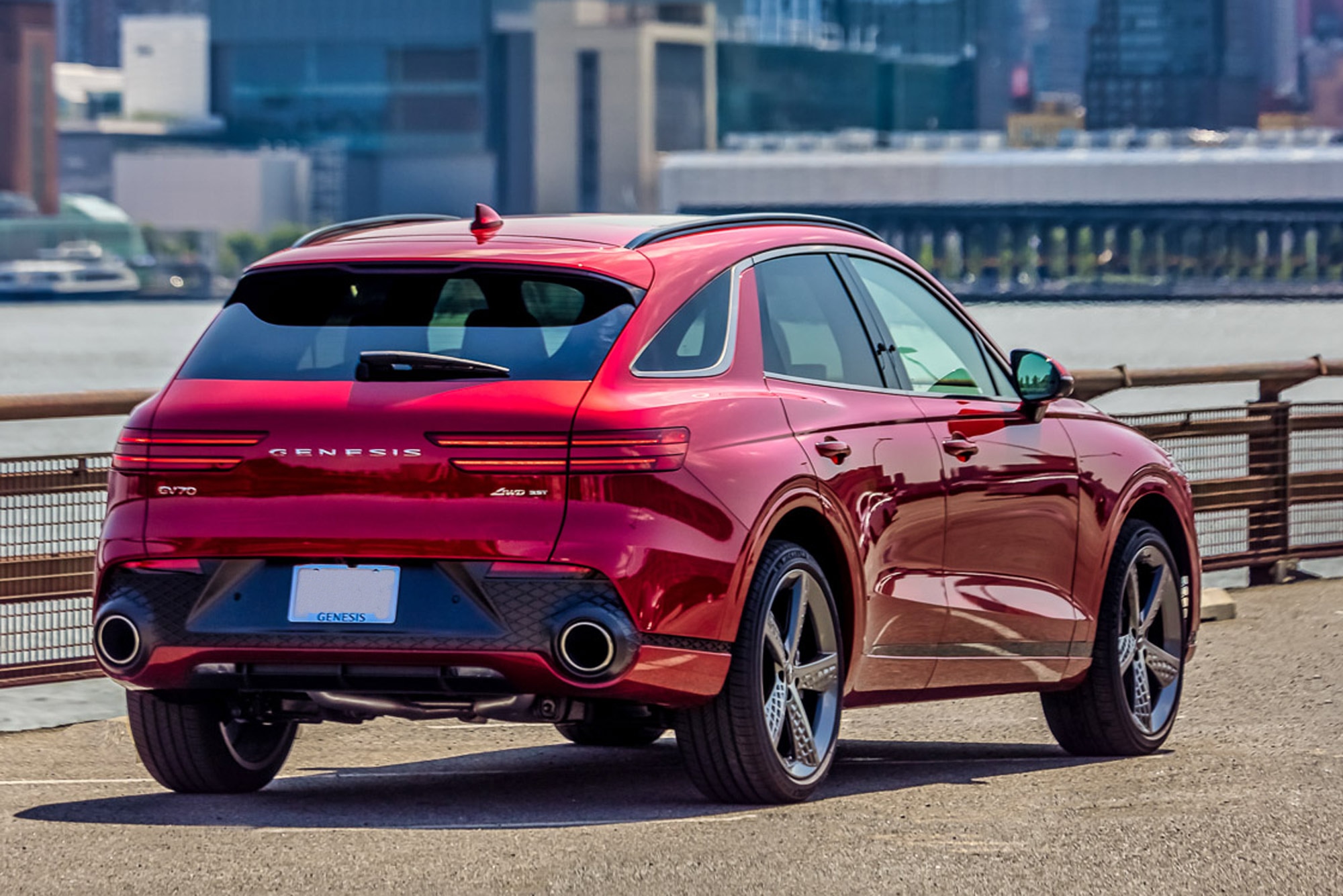 Genesis | GV70
Genesis | GV70
Opting for the More Powerful V6 Reduces Miles per Gallon
Both the GV70 and the GV80 come with an entry-level turbo four-cylinder engine that's good for 300 horsepower. Matched with an eight-speed automatic transmission, it delivers 22/28/24 mpg city/highway/combined in the smaller of the two SUVs and 20/24/22 mpg in the larger GV80.
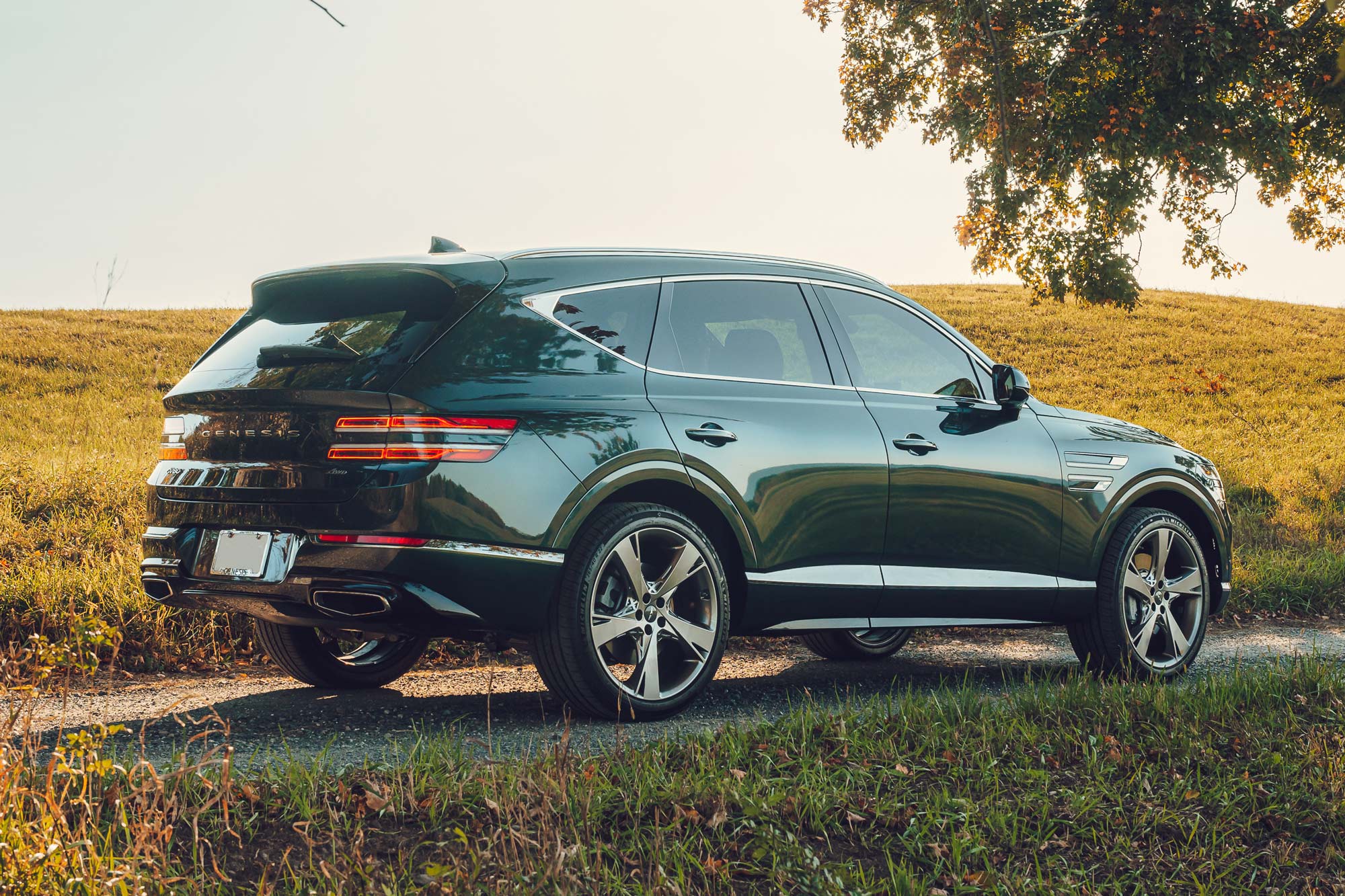 Genesis | GV80
Genesis | GV80
Stepping up to the mightier V6 makes 375 horsepower but drops fuel economy to 19/24/21 mpg for the GV70 and 18/23/20 mpg for the GV80. Genesis includes an eight-speed transmission with the V6.
Written by humans.
Edited by humans.
 Benjamin Hunting
Benjamin HuntingNearly two decades into his career as an automotive journalist, Benjamin has had his hands greasy, his hair blown back, and his heart broken by more than one project car. In addition to his work at Capital One, he has contributed features and reviews to Motor Trend, Car and Driver, Hagerty, Driving Line, Inside Hook, Super Street, European Car, Roadkill Magazine, Motor 1, The Drive, the Toronto Star, the National Post, Business Insider, NAPA, Autoblog, Automotive News Canada, and AutoGuide. He is also cohost of the Unnamed Automotive Podcast and cocreator of the Code 45 and Dead Air graphic novels. In his spare time, he's a friend to vinyl and enjoys keeping the shiny side up during track days.
Related articles
View more related articles